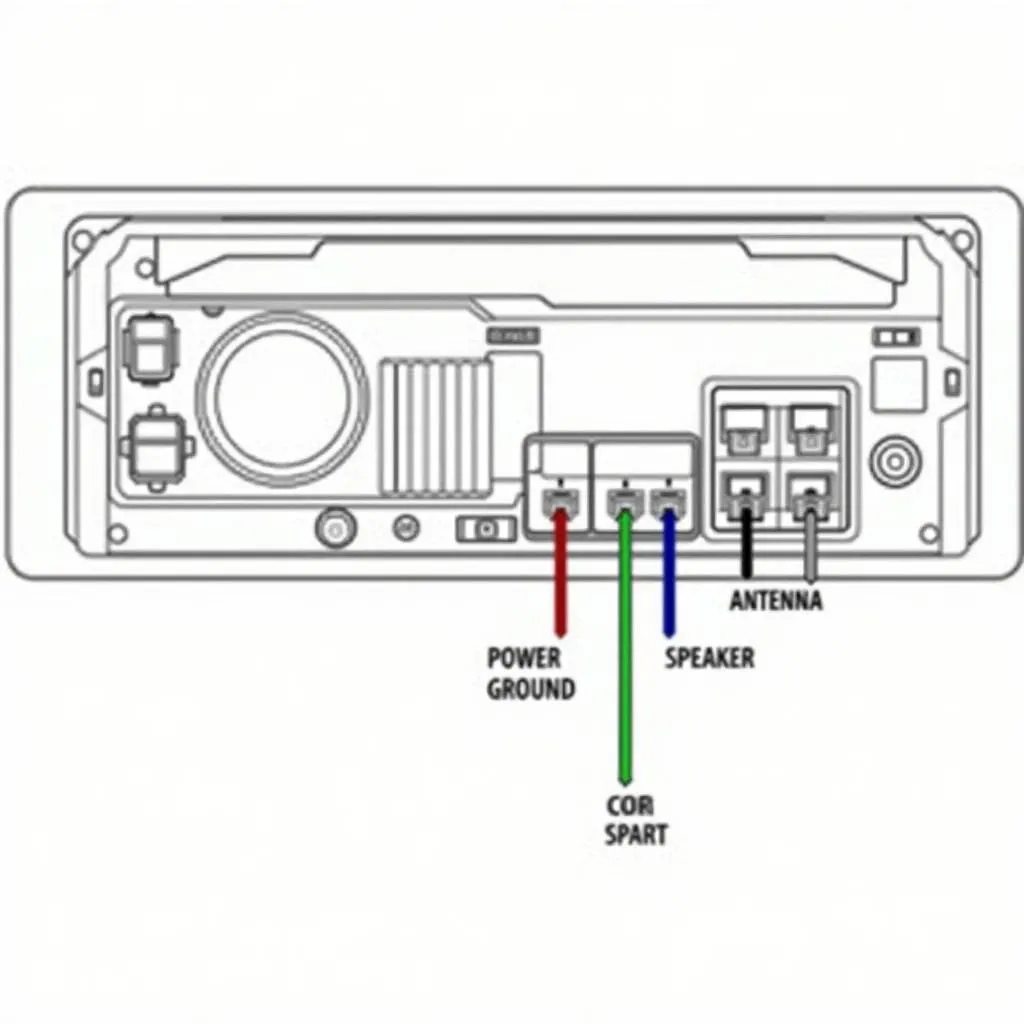If you’re experiencing issues with your Prius key fob, like decreased range or unresponsive buttons, a dead battery is often the culprit. Luckily, Prius key fob battery replacement is a simple DIY task that can be done in minutes. This guide will walk you through the process step-by-step, saving you a trip to the dealership and keeping your Prius running smoothly.
What You’ll Need:
Before you begin, gather these few items:
- A replacement CR2032 battery (widely available at supermarkets, electronics stores, and online)
- A small flat-head screwdriver
- Your Prius key fob
Prius Key Fob Battery Replacement: Step-by-Step Instructions
Follow these simple steps to replace your Prius key fob battery:
-
Locate the release button: Examine your key fob and find the small release button or notch. This is typically located on the back or side of the fob.
-
Release the mechanical key: Gently press the release button and slide the mechanical key out of the fob. This will expose the battery compartment.
-
Open the battery compartment: Use the flat-head screwdriver to carefully pry open the battery compartment cover. Be gentle to avoid damaging the fob or the cover.
-
Remove the old battery: Note the orientation of the positive (+) and negative (-) sides of the old battery. Carefully remove the old battery from the compartment.
-
Insert the new battery: Align the positive (+) side of the new CR2032 battery with the corresponding marking in the battery compartment. Gently press the battery into place.
-
Close the battery compartment: Align the cover and press it firmly until it snaps back into place. Make sure it’s securely closed.
-
Reinsert the mechanical key: Slide the mechanical key back into its slot on the key fob.
-
Test the key fob: Try locking and unlocking your Prius doors using the key fob buttons to ensure the new battery is working properly.
Troubleshooting Tips:
- Key fob still not working? Double-check that the new battery is correctly installed and that the positive (+) and negative (-) sides are properly aligned.
- Battery compartment won’t close? Ensure the old battery is fully removed and that there’s no debris obstructing the compartment.
Frequently Asked Questions
How often should I replace my Prius key fob battery?
On average, a Prius key fob battery lasts 3 to 5 years. However, factors like usage and climate can affect battery life. It’s best to replace it as soon as you notice decreased range or responsiveness from your key fob.
Can I use any CR2032 battery for my Prius key fob?
Yes, any brand of CR2032 battery will work. However, it’s recommended to choose a reputable brand for better performance and longevity.
What if I replace the battery and my key fob still doesn’t work?
If you’ve replaced the battery correctly and are still experiencing issues, there may be a problem with your key fob itself. In this case, it’s best to consult your Toyota dealership or a qualified automotive technician.
Can I damage my Prius key fob by replacing the battery myself?
As long as you’re careful and follow the instructions, you shouldn’t damage your key fob. However, be mindful of the small parts and avoid using excessive force when opening and closing the battery compartment.
Is it cheaper to replace the battery myself or go to the dealership?
Replacing the battery yourself is significantly cheaper than going to the dealership. You’ll only need to purchase the replacement battery, saving you labor costs.
If you’re looking for more information on your Prius, check out this article on Prius key fob battery. You might also find this guide helpful: how to turn off anti theft prius c.
Conclusion
Replacing your Prius key fob battery is a straightforward process that can save you time and money. With just a few simple steps and the right tools, you can keep your key fob functioning optimally. Remember, addressing a dead key fob battery promptly ensures seamless and convenient access to your vehicle.

